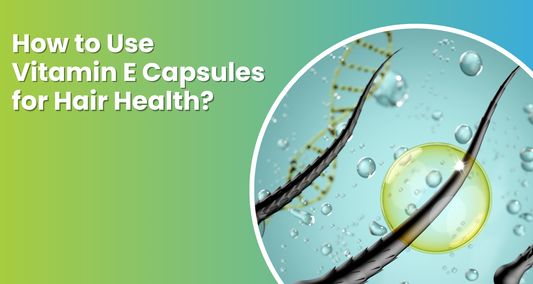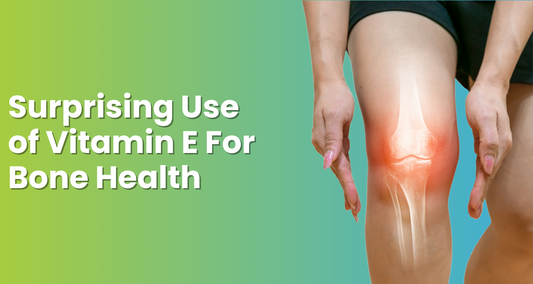When it comes to protein supplements, few products are as popular as whey protein. However, even within the realm of whey protein, there exist two vastly different products: whey protein isolate and whey protein concentrate.
While both products are derived from whey protein, the process used to create them, as well as their content, offer different benefits and drawbacks. As such, knowing the difference between whey protein isolate vs concentrate is crucial to maximizing the benefits of your supplement.
Key Takeaways:
- Whey protein isolate and concentrate are two different forms of whey protein that offer distinct benefits
- Isolate is more pure and contains a higher level of protein than concentrate
- Concentrate is less expensive and contains a higher level of carbs and fats than isolate
- The choice between whey protein isolate vs concentrate should be based on individual needs, goals, and dietary requirements
- Consult with a healthcare professional or a registered dietitian before deciding on supplement intake
What is Whey Protein Isolate?
Whey protein isolate is a purer form of whey protein that contains at least 90% protein. It is manufactured through a specialized process that removes excess carbohydrates, lactose, and fat, leaving behind a highly concentrated source of protein.
Whey protein isolate offers numerous benefits, including faster absorption rates, enhanced muscle growth, and improved recovery following intense workouts. Its high amino acid content also helps to promote overall health and well-being by supporting the immune system and managing inflammation.
Many athletes and fitness enthusiasts rely on whey protein isolate as a crucial component of their diet and supplement regime. With its exceptional purity and muscle-building properties, it is an excellent choice for those looking to maximize their gains and achieve their fitness goals.
What is Whey Protein Concentrate?
Whey protein concentrate is a popular dietary supplement used by many athletes, fitness enthusiasts, and health-conscious individuals. It is a milk-derived protein that is obtained after the removal of lactose, fats, and other non-protein components. The resulting product contains high levels of protein, typically ranging from 35% to 80%, depending on the level of processing.
Whey protein concentrate offers numerous health benefits, such as supporting in muscle recovery, supporting immune function, and managing inflammation. Its high concentration of essential amino acids makes it an ideal protein source for those looking to build lean muscle mass and improve overall body composition. Additionally, research suggests that whey protein concentrate may promote weight loss by reducing appetite and increasing feelings of fullness.
The production of whey protein concentrate involves several stages, including filtration, ultrafiltration, and drying. Each step aims to concentrate the protein content while removing impurities and preserving the nutritional profile of the protein. The resulting powder can be used in a wide range of applications, such as protein shakes, protein bars, and baked goods.
Benefits of Whey Protein Concentrate
- High protein content: Whey protein concentrate contains a significant amount of protein per serving, making it an excellent source of this essential nutrient.
- Rich in amino acids: The protein in whey protein concentrate is a complete protein, containing all the essential amino acids required by the human body.
- Muscle Recovery: Whey protein concentrate contains high levels of branched-chain amino acids, which support muscle recovery and repair after exercise.
- Weight loss support: Studies suggest that whey protein concentrate may aid in weight loss by reducing appetite and increasing feelings of fullness.
- Immune function: Whey protein concentrate contains immunoglobulins, which have been shown to enhance immune function and manage the risk of infection.
Overall, whey protein concentrate is an excellent source of high-quality protein that can benefit anyone looking to improve their health and fitness. Its rich amino acid profile, ease of absorption, and versatility make it a popular choice among those seeking to build muscle, recover from exercise, and support weight loss.
Whey Protein Isolate vs Concentrate: Pros and Cons
When it comes to selecting protein supplements, two of the most well-known options are whey protein isolate and concentrate. In the whey protein isolate vs concentrate comparison, both provide high-quality protein and numerous health benefits, but they differ in specific aspects.
Whey Protein Isolate: Pros
- Higher protein content per serving due to further processing that removes fat and lactose
- Lower in carbohydrates and fats, making it a suitable choice for individuals following a low-carb or low-fat diet
- Rapid digestion and absorption, making it an ideal option for pre and post-workout nutrition
Whey Protein Isolate: Cons
- Higher cost per serving compared to whey protein concentrate due to the additional processing steps involved
- Can lack certain beneficial components found in whey protein concentrate, such as immune-boosting compounds and growth factors
Whey Protein Concentrate: Pros
- Typically less expensive per serving compared to whey protein isolate
- Contains certain beneficial components such as immune-boosting compounds and growth factors
- Provides a balanced nutrient profile with a small amount of carbohydrates and fats, making it a better choice for overall health and wellness
Whey Protein Concentrate: Cons
- Lower protein content per serving compared to whey protein isolate due to a higher fat and lactose content
- Can be less suitable for individuals following a low-carb or low-fat diet due to the higher carbohydrate and fat content
- Slower digestion and absorption compared to whey protein isolate, limiting its effectiveness as a pre and post-workout supplement
So, which one is better? The answer depends on your specific fitness goals, dietary preferences, and budget. If you're looking for a highly pure form of protein that's low in carbs and fats and can invest more money, whey protein isolate may be the better choice.
If you're on a budget, and looking for a more balanced nutrient profile with added benefits, then whey protein concentrate may be the better option for you.
Conclusion
After exploring the differences between whey protein isolate and concentrate, it is clear that both forms of protein offer unique benefits. Whey protein isolate is an excellent choice for those seeking a highly concentrated protein source with minimal lactose, fat, and carbohydrates. Its composition and purity make it suitable for individuals looking to build lean muscle mass and accelerate recovery.
On the other hand, whey protein concentrate is a more cost-effective option that provides a balanced source of protein, carbohydrates, and healthy fats. Its slower absorption rate makes it ideal for individuals looking to stay fuller for longer and maintain a steady source of energy. Furthermore, it may aid weight loss efforts by reducing the overall caloric intake.
When deciding between whey protein isolate and concentrate, it is essential to consider your fitness goals, dietary requirements, and personal preferences. Weightlifters and athletes seeking to maximize muscle gains and recovery may prefer whey protein isolate. Meanwhile, those looking for a versatile protein source that supports weight loss and overall well-being may opt for whey protein concentrate.
Ultimately, the best choice depends on individual needs and circumstances. Regardless of which option you choose, ensure you purchase a reputable brand and consume the proper dosage as part of a balanced diet and regular exercise routine. Speak with a healthcare professional or registered dietitian if you have any concerns or questions about incorporating whey protein into your diet.
FAQs
What is the difference between whey protein isolate and concentrate?
Whey protein isolate is about 90% protein or higher and undergoes processing to remove most lactose, fat, and carbs. Whey protein concentrate contains 70-80% protein and retains more lactose, fat, and carbohydrates.
What are the benefits of whey protein isolate?
Whey protein isolate supports muscle building and recovery due to its rapid absorption, and it's low in lactose, fat, and carbohydrates, making it suitable for those with lactose intolerance or on a low-carb diet.
What are the benefits of whey protein concentrate?
Whey protein concentrate is cost-effective, contains bioactive compounds like immunoglobulins and lactoferrin that support immune function, and offers essential amino acids for muscle recovery and growth.
Which is better: whey protein isolate or concentrate?
The choice depends on your goals and dietary needs. Whey protein isolate is ideal for high protein content and minimal lactose, making it suitable for lactose intolerance or low-carb diets. Whey protein concentrate is cost-effective and provides additional bioactive compounds, suitable for a well-rounded protein source.
What are the pros and cons of whey protein isolate and concentrate?
Whey protein isolate pros: high protein content, minimal lactose, low in fat and carbs, rapid absorption. Cons: higher cost. Whey protein concentrate pros: cost-effective, contains bioactive compounds, good amino acid profile. Cons: higher lactose and carbs, slower absorption compared to isolate.




